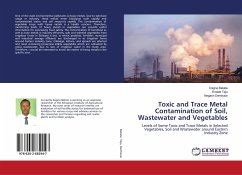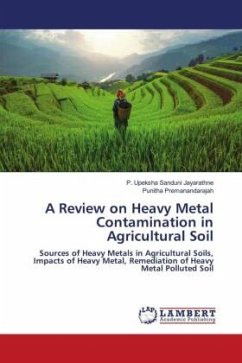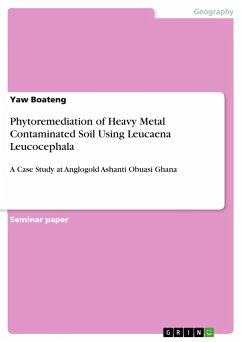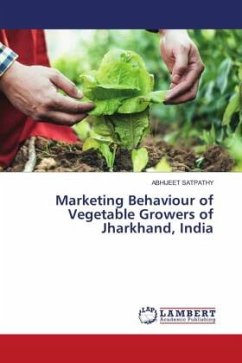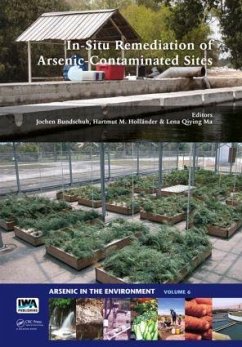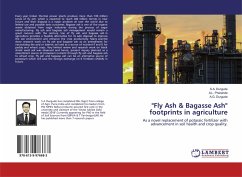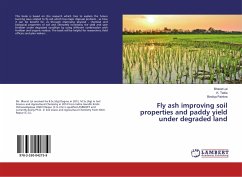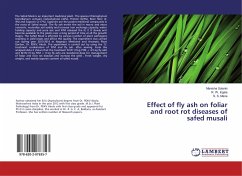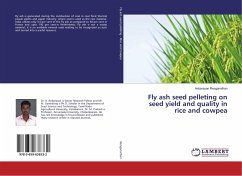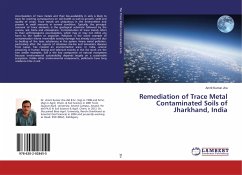
Remediation of Trace Metal Contaminated Soils of Jharkhand, India
Versandkostenfrei!
Versandfertig in 6-10 Tagen
33,99 €
inkl. MwSt.

PAYBACK Punkte
17 °P sammeln!
Accumulation of trace metals and their bio-availability in soils is likely to have for reacting consequences on soil health as well as growth, yield and quality of crops. Trace metals are ubiquitous in the environment and present in small amounts in normal condition. Typically, the principal reservoir of trace elements is the geological substrate followed by the oceans, soil, biota and atmosphere. Contamination of trace metals refers to their anthropogenic accumulation, which may or may not inflict any harm to the system or organism. Pollution is the worst example of contamination where irreve...
Accumulation of trace metals and their bio-availability in soils is likely to have for reacting consequences on soil health as well as growth, yield and quality of crops. Trace metals are ubiquitous in the environment and present in small amounts in normal condition. Typically, the principal reservoir of trace elements is the geological substrate followed by the oceans, soil, biota and atmosphere. Contamination of trace metals refers to their anthropogenic accumulation, which may or may not inflict any harm to the system or organism. Pollution is the worst example of contamination where irreversible toxicity-damage has already occurred due to buildup of the toxic substances in the system. Heavy metal pollution, particularly after the reports of infamous itai-itai and minamata diseases from Japan, has created an environmental scare. In India, arsenic poisoning in human beings and selenium toxicity in the live stock are the two similar examples. Soil is the key component of naturalecosystems because environmental sustainability depends largely on a sustainable ecosystem. Unlike other environmental components, pollutants have long residence time in soil.



